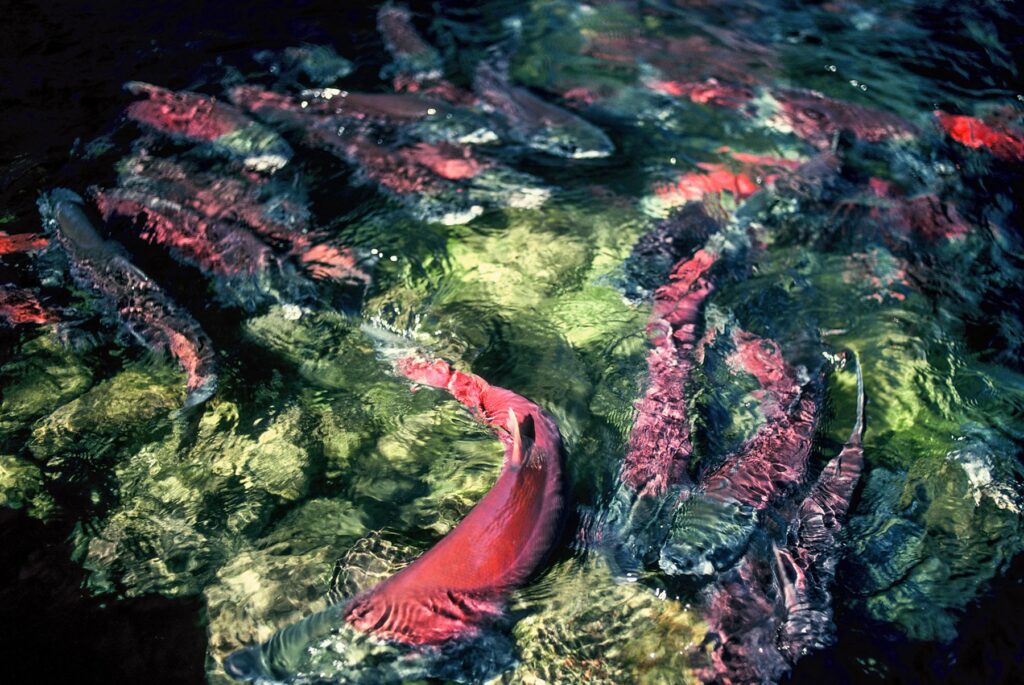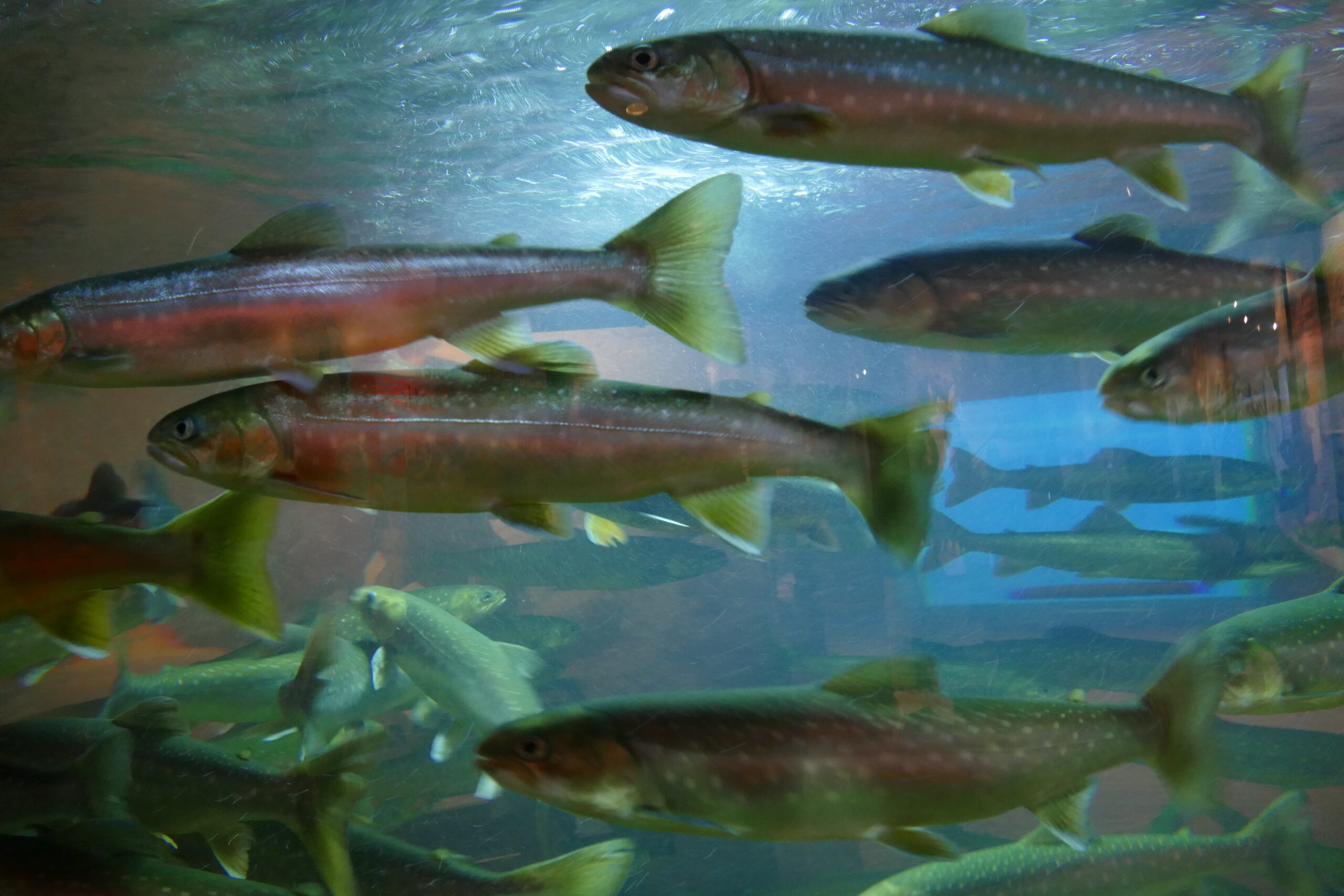On April 22, 2022, the Federal Court issued judgment in the case of Mowi Canada West Inc. et al v Canada (Fisheries, Oceans and Coast Guard). In the decision, which concerned challenges to a licencing decision regarding net pen salmon farms in the Discovery Islands area, the court set aside the decision of the Minister of Fisheries, Oceans and the Coast Guard (the “Minister”) providing for the phasing out of net pen salmon farms in the Discovery Islands area by June 30, 2022.

Photo credit: Doane Gregory
Background
Open Net pen salmon farms have long been controversial on B.C., particularly in the Discovery Islands area. In 2009, the federal government established a commission of inquiry into the decline of Fraser River sockeye salmon. In 2012, Commissioner Bruce Cohen issued a report explaining his findings. Among the recommendations made in that report was that the federal government study the impacts of net pen salmon farms on Fraser River sockeye, including particular recommendations regarding the farms located in the Discovery Islands. In response to Cohen’s recommendations, DFO had the Canadian Science Advisory Secretariat (“CSAS”), the body that coordinates scientific review and advice for DFO, produced nine peer-reviewed scientific reports between 2017 and 2020, which concluded that aquaculture in the Discovery Islands poses no more than a minimal risk of harm to Fraser River sockeye salmon. This CSAS review and its conclusions have been the subject of significant criticism.
To lawfully operate, fish farms in tidal waters in B.C. must have a tenure issued under the provincial Land Act and an aquaculture licence issued under the federal Fisheries Act. In addition, before moving fish into a farm, the operator of the farm must obtain a transfer licence issued under the Fisheries Act. In September 2020, DFO announced that the Minister would decide whether to renew aquaculture licences for salmon farms in the Discovery Islands area based on DFO’s scientific risk assessment and consultations with We Wai Kai, Wei Wai Kum, Kwiakah, K’omoks, Klahoose, Tla’amin and Homalco First Nations (the “Discovery Islands First Nations”). During that consultation, the Discovery Islands First Nations expressed concerns regarding the declines of Fraser River salmon and the impact of salmon farming on wild stocks. None of the Discovery Islands First Nations expressed support for the continued operation of the salmon farms in the Discovery Islands under DFO’s current management conditions.
On December 17, 2020, the Minister decided to phase out salmon farms in the Discovery Islands area by June 30, 2022. Her decision was documented in a memorandum from the deputy minister to the Minister, which reviewed the background, summarized the science and the consultations with First Nations, and recommended that the Minister issue the licences for the aquaculture sites with an expiration date of June 30, 2022. An annotation to the memo indicated that the Minister did not concur with that recommendation and instead decided (1) to reissue the licences for a term expiring on July 30, 2022, for the purpose of allowing the farms time to grow out and harvest fish already in the farms, (2) no further juvenile fish would be authorized to be introduced into the farms, and (3) the farms must be fish-free by June 30, 2022 (the “Decision”).

Photo credit: Doane Gregory
The Judgment
Each of the four operators of open net pen salmon farms in the Discovery Islands, Mowi, Cermaq, Grieg and Saltstream, challenged the Decision by way of applications for judicial review in Federal Court, which were consolidated into a single proceeding. A coalition of conservation organizations represented by Ecojustice and a coalition of First Nations organizations (including First Nations Fisheries Council of British Columbia, British Columbia Assembly of First Nations, Union of British Columbia Indian Chiefs, and First Nations Summit) represented by Mandell Pinder LLP intervened in the consolidated proceeding. Some of the Discovery Islands First Nations applied for but were not granted leave to intervene in the proceeding.
The Federal Court allowed all four applications for judicial review and set aside the Decision. The court agreed with the applicants that the Decision was both unreasonable and was made in an unfair manner. Either finding would have been sufficient to set aside the Decision. The court held that the Minister had a legal obligation to treat the applicants fairly, which she failed to discharge because she didn’t notify them in advance that she was considering phasing out fish farms in the area, didn’t give them a meaningful opportunity to respond to that potential decision, and didn’t give reasons for the Decision. The court also held that the Decision was unreasonable because the Minister failed to justify the Decision by failing to provide reasons for it. In the court’s view, the memo to the Minister did not provide reasons for the Decision and, in the absence of written reasons, the Decision was not justified and was therefore unreasonable.
In its judgment, the court completely ignored the issues raised by the First Nations coalition, including that the reasonableness of the Decision must be assessed in light of the Minister’s constitutional obligations to Indigenous Peoples. The First Nations coalition submitted that the Minister was legally bound to consider the concerns expressed by the Discovery Islands First Nations and that the Decision was justified based on their refusal to consent to the continued operation of the farms under existing DFO conditions. The court not only failed to deal with this issue, it failed to engage at all with the broader question of whether there was a factual basis for the Decision. In the court’s view, it was incumbent on the Minister to explain the basis for the Decision in written reasons, failing which the Decision was unreasonable.
This case summary provides our general comments on the case discussed and should not be relied on as legal advice. If you have any questions about this case or any similar issue, please contact any of our lawyers.
See CanLII for the Reasons for Judgement.